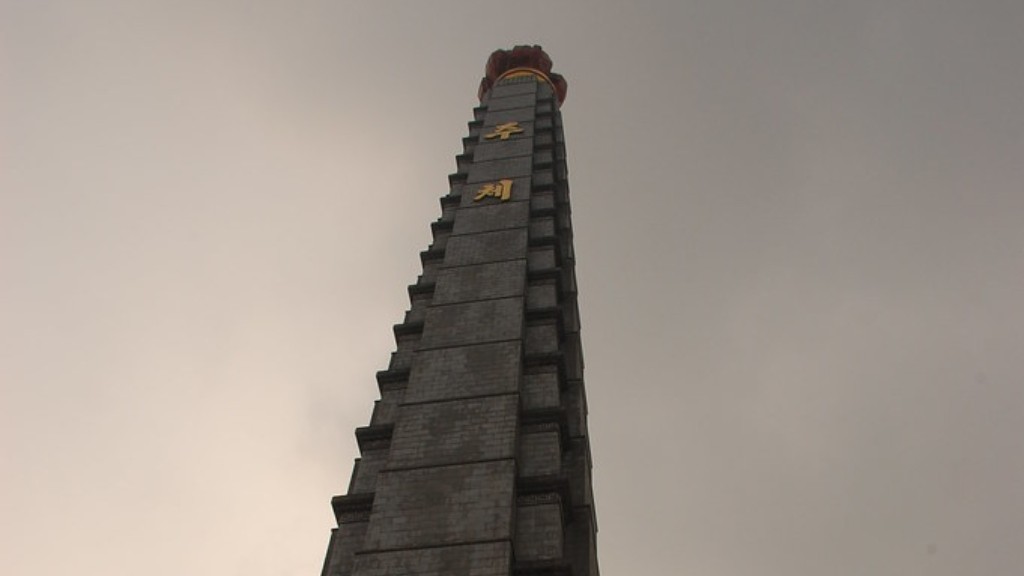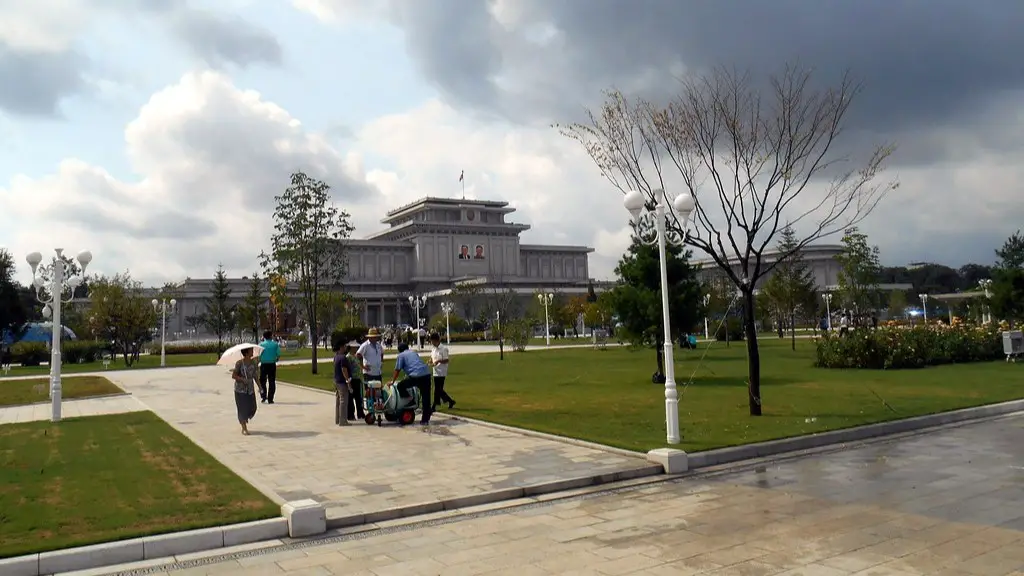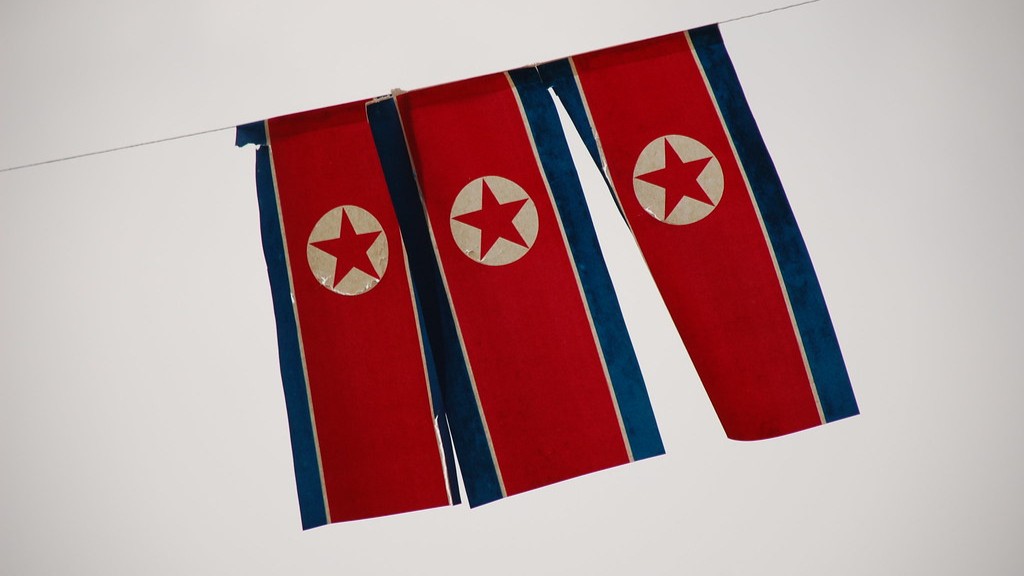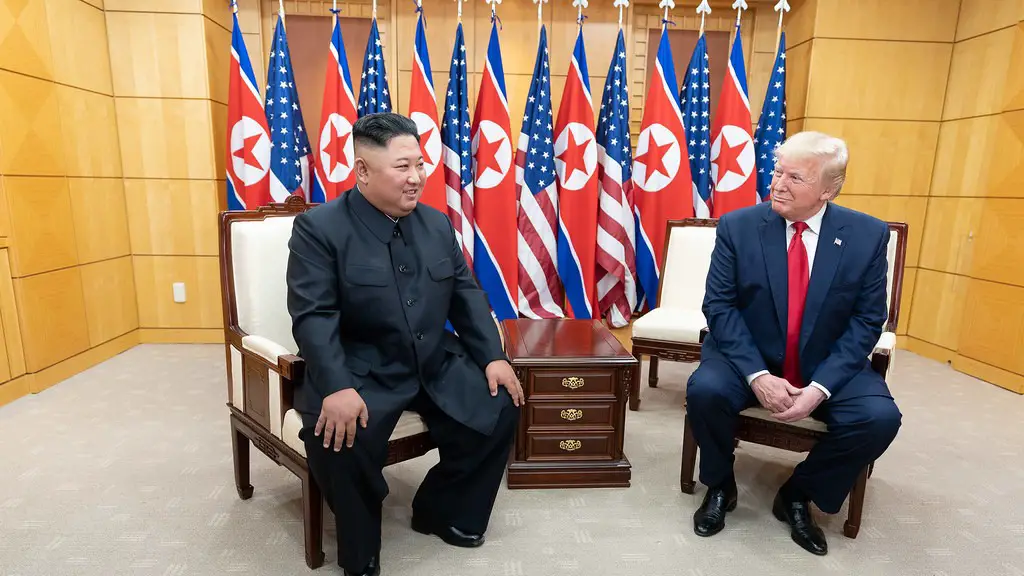The division of Korean Peninsula
The Korean War was started by North Korea, with the backing of its ally China, in an effort to re-unify the divided Korean peninsula under North Korean Communist rule. After World War II, the peninsula was divided along the 38th International Parallel into two separate states, the Democratic People’s Republic of Korea in the North, and the Republic of Korea in the South. The borders of these two states would later become known as the Demilitarized Zone and have remained relatively unchanged since the Korean War.
The division of the peninsula had been dictated by the United States, which had been responsible for overseeing the post-WWII state of affairs in the region. The Soviet Union had been responsible for ensuring Kim Il Sung, the leader of North Korea, had maintained control – however, when the competition between the superpowers cooled down, the Soviet Union pulled out of the region and left Kim Il Sung in a very difficult situation.
He saw the division of the peninsula as a huge threat to North Korea’s existence and although negotiations were attempted, eventually he decided the only course of action to take was to launch an all-out military assault on the South. On June 25th 1950, North Korean forces invaded South Korea with the intention of unifying the states under their control and it marked the start of the Korean War.
Motivations for North Korea
One of the primary motivations for the North Korean invasion was the need to preserve their own state and maintain a sense of stability. Having been left in a difficult position, the North Korean leader Kim Il Sung saw the invasion of the South as the only way to really secure his state and stop it from being seen as a weak power within the region.
As a result, the invasion of South Korea by North Korea was seen by many as an act of pre-emptive self-defense rather than a deliberate attempt to start a war. This view was consolidated by the fact that North Korea had some very specific goals in mind, such as restoring a unified Korean peninsula, ensuring their safety and preventing foreign interference in the region.
In addition, North Korea had another underlying motivation for the attack. They believed that all Koreans – regardless of whether they were from the North or South – should be united under one government and leadership. This, they argued, would create a stronger, more unified state and make it easier for North Korea to secure its interests in the region.
Role of China and The United Nations
Another key factor in the start of the Korean War was the involvement of China. Although North Korea was strongly motivated to start the war, it did not have the military capabilities to launch a successful invasion of South Korea without the support of China. Beijing viewed the attack as an opportunity to weaken Western forces in the region and to increase its influence.
The United Nations was also involved in the war. After the North Korean invasion, the UN Security Council passed a resolution condemning the attack and demanding the withdrawal of the North Korean forces. This resolution was backed by the United States and the United Nations was then authorized to send troops and other resources to help the South resist the attack.
The United Nations’ response was crucial because it showed the world that North Korea’s aggressive behavior would not be tolerated and that the international community would take action to defend its principles. This in turn increased the pressure on North Korea and made the war more costly for the country.
Summary of the War
The Korean War lasted for three years and resulted in the deaths of millions of people. Despite being heavily outnumbered and outgunned, South Korea – supported by United Nations forces – managed to resist the North Korean attack and ultimately repel it. In the end, the war ended in an uneasy stalemate with the Korean peninsula remaining divided between North and South.
It is important to note that the war was the result of North Korea’s desire for unification of the Korean peninsula and its belief that a unified state would be stronger and better able to protect its interests. North Korea also wanted to ensure its safety and prevent foreign interference in the region. Although North Korea failed to achieve its goals, the start of the war ultimately showed the world that North Korea would not be bullied and was capable of defending itself.
Consequences and Legacy of the War
The Korean War was one of the first major proxy wars of the Cold War and it had long-lasting consequences that are still felt today. The war resulted in the deaths of millions of people, including combatants and civilians, and left the peninsula divided which has had a significant impact on the political, social, and economic landscape of the region.
The war also helped to cement the view of North Korea as a hostile and oppressive state. Its actions during the war also made it clear that it would not be intimidated by the international community and would use whatever means necessary to protect its interests.
International Impact of the War
The start of the Korean War did more than just turn North Korea into a dangerous and unpredictable state. It also marked the beginning of the Cold War, as the superpowers were brought into direct confrontation for the first time since the end of WW2.
The Korean War also highlighted the importance of international cooperation in tackling issues of global security and it influenced the policies of many countries in the years that followed. In fact, the Korean War was one of the first times that the UN Security Council had acted to resolve a conflict and its response to the war was a significant factor in the development of international law.
Media Coverage of the War
The Korean War was one of the first wars to be extensively covered by the media and it helped to shape people’s perceptions of the conflict. The media’s coverage of the war was largelynegative and it depicted North Korea in a very negative light, focusing on its actions as actions of a rogue state.
This portrayal of North Korea as an aggressive and unpredictable state has lasted to this day and it has had a significant effect on how the country is viewed by the international community. This negative perception of North Korea has made it more difficult for the country to re-establish ties with its neighbors and the wider international community.
Future Outlook
The Korean War ended almost 70 years ago, yet the legacy of the conflict lives on in the form of the country’s continued division. North and South Korea remain divided and tensions between the two states continue to simmer, with both sides keen to reunify the peninsula. However, with the strong US presence in South Korea, it is unlikely that a reunification will be possible in the near future.
The Korean War has had a significant impact on the region, both politically and economically, and it has been a significant factor in the development of Korea. Despite its legacy of violence, the war has opened up new possibilities for the countries of the region and has highlighted the importance of international cooperation in tackling global security issues.
The war has also spurred both sides to work towards reconciliation and peace and although it has not been easy, both states have made great strides in improving their relationships. While tensions remain, both Koreans are hopeful that one day, the two sides can ultimately be reunited.





